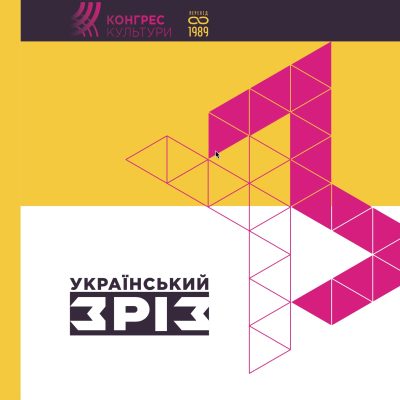The fall of the Berlin Wall, the Velvet Revolution, protests of Solidarity Labor Union in Poland, Revolution on Granite and collapse of the USSR have all become accelerating points of many processes. It would seem that the way to freedom was open now, and many «Soviet people» secretly dreamed about it. But the majority of people, and therefore society as a whole, were unprepared for freedom and its flip side — responsibility. Only mature people and societies can be free and are able to take responsibility for themselves. The infantile, however, run away from it. Getting stuck in the transition is one of those escape options.
We live in situation of transition between the old world and the new. We emerged from the Soviet past and haven’t yet come to the desired «European future». We are neither here nor there. We are in a corridor: with mental luggage of the past, paternalism and a reluctance to change, but also looking, waiting, toward the West, with the pursuit of «European values» and «Western lifestyle».
We have been repeating familiar or finding new forms of adaptation to this transition over the last 30 years. Or maybe ways to support it? Rites allow you «not to think», not to look at the real you and to blame «unfair conditions». They exempt you from the need to clearly define your place, goals, and therefore — need to change.
Rituals and ceremonies save us from uncertainty and anxiety generated by insecurity of the transition. We support old algorithms of action, often meaningless, invented and imposed on us. We have transformed some of the Soviet rites, replacing ideology with national symbols. We invent new rituals, and become hostages to someone else’s rules. We often perform rituals automatically, without asking what for, why and what is behind these actions, where they ultimately lead or do not lead us? Rituals help us survive but do they not distance us from ourselves at the same time?
EXPECTATIONS AND DISAPPOINTMENT…
BOHDAN SHUMYLOVYCH
2019 is rich in anniversaries in Ukraine. In January, for example, there was the 90th anniversary of release of Ukrainian Soviet film by Dziga Vertov (David Kaufman), Man with a Movie Camera, and director’s brother Mykhail was a cameraman. The very same Mykhail Kaufman in the same 1929 created a masterpiece of early Soviet but also Ukrainian cinema In Spring. Both films were reaction and a specific response to Walter Rutman’s experimental movie of 1927 Berlin: Symphony of a Great City. Films Man with a Movie Camera and In Spring, where one can see the documentary-cinematic «symphony» of Kyiv in the spring of 1929, will have a sequel in the world-famous film Symphony of the Donbass. All these films are considered to be the classics of the world vanguard and are much appreciated in countries that foster artistic culture but in 2019 hardly any major Ukrainian edition mentioned the anniversary − the 90th anniversary of brothers Kaufmans’ experimental films. I am not saying that anniversaries are to be celebrated just as our Soviet ancestors did, but such dates can be a good occasion for meditation and reflection… Read more
